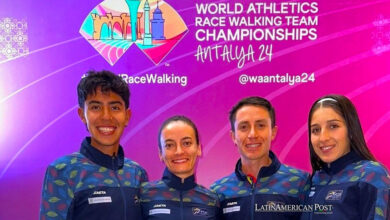Can FIFA’S Time-Wasting Initiative “Save” Football?
Adding 10, 11, 12 minutes to games has not been uncommon, and one might argue that the games are better for it. Moreover, you could also argue that this could lead to big changes in the game further down the road. It won’t “save” football – as it hardly needs saving – but it could improve the game immeasurably.

Andy Daniels
Escucha este artículo
There have been plenty of takeaways from the 2022 FIFA World Cup, some positive for the game and others not so much. VAR (video assistant referee) has once again been in the spotlight, with many pundits believing that it has been too intrusive and, perhaps more importantly, led to the wrong decision. The decisions to award a penalty to Argentina versus Poland and Portugal’s handball penalty versus Uruguay were framed as VAR at its worst. Lest we forget, the technology was only meant to clear up “clear” and “obvious” errors by the on-field referee. Too often, VAR has led to controversy.
And yet, one of the interesting things that have been noticed at this World Cup is the long amount of injury time added to the end of matches. Adding 10, 11, 12 minutes to games has not been uncommon, and one might argue that the games are better for it. Moreover, you could also argue that this could lead to big changes in the game further down the road. It won’t “save” football – as it hardly needs saving – but it could improve the game immeasurably.
Extra injury time has been broadly welcomed
It is, of course, a subjective opinion, but we gather that many fans enjoyed the extra time experience at the World Cup. It added an extra layer of jeopardy to teams defending a lead and gave hope to those trailing after 90 minutes. Even those live betting on football matches would have been given more time to place their bets or cash out to cut their losses.
Certainly, the big question is what are FIFA’s goals here. Well, the idea is simple: Instruct the referees to aggressively add time to the clock for injuries, stoppages, substitutions, and general play-acting. In England’s opening game against Iran, an extra 24 minutes of injury time was added to the game, 14 minutes in the first half and 10 in the second. Much of that was due to an injury to Iran’s goalkeeper Alireza Beiranvand, but it still set the tone for the rest of the tournament, and it might become the norm in other tournaments and competitions – or at least, we hope so.
As you might imagine, FIFA’s goal is to eliminate time-wasting. Beiranvand’s injury was a real one, and Iran had little to gain from wasting time, but it would be naive to suggest that time-wasting is not prevalent in modern football, particularly tournament football. Indeed, as was recently pointed out on Twitter – you rarely see players on a losing team suffering from cramp towards the end of a game.
Read also: The Failure Of Concacaf In The World Cup In Qatar 2022
Tinkering now could improve the game in future
FIFA – and football authorities in general – tend to get a lot of criticism for tinkering with the game, but there is a logic to this that might pay dividends later down the line. That England match was almost two hours – well over two hours if you count the half-time break – from whistle to whistle, and it might be the case that some fans don’t welcome that.
However, we believe that FIFA’s reasoning here is that players and coaches will soon learn that there is no point in time wasting. Critics might claim that it leads to the Americanization of football, suggesting that it follows the US sports model of stopping the clock constantly through the game. But all fans will agree that they want to see the ball in play for the full 90 minutes. This is the only way to ensure a fair outcome.
It remains to be seen whether other competitions will adopt – or be forced to adopt – this initiative. But it seems that FIFA is taking the lead here in the right way. If the model goes the way it hopes, fans might see time-wasting tactics as a thing of the past.



